Videocall transactions integrate all valuable procedures into a single, frictionless, friendly and secure digital process
TrustCloud VideoID, the quickest video identification on the market
Video identification aided by real people maximises its agility and its security, building trust in electronic transactions
Lockdowns, travel restrictions and social distancing have resulted in companies resorting to video calls to bring their staff together and keep commercial activity afloat. They have become such an integral part of everyday life that they have normalised working from home on a large scale and created new market opportunities, as well as enhancing many other businesses. Zoom, the videoconference software supplier that became popular during lockdown, earned 2,206 million euros between February 2020 and January 2021, which was equal to four times its turnover —and more— compared to the 2019 tax year.
Outside the office, video calls have proven to be useful for many other functions which were only feasible in person before. Over the last year they have been used to go round museums, visit the doctor, open bank accounts and organise professional conferences which previously required a large trade fair.
In this new context, TrustCloud has been successful in getting video calls to build the same trust in digital trade as that generated “face-to-face” in “analogue” trade. The thing is, people still prefer interacting with other individuals rather than with a machine, while the intelligence of human instinct continues to exceed the intelligence of computers, particularly in situations such as identity verification.

A trustworthy transaction
Using video calls in an identification process is beneficial, mainly because there is a real person present during the transaction. This allows the user to feel more secure throughout their digital experience, while enabling companies stop large-scale fraud. “We are what the user misses when they sign a contract online or call a phone number and have to communicate with an automatic assistant. And it’s called trust,” states María de Lombas, general manager of the video identification service at TrustCloud.
As a qualified trust service provider, TrustCloud has driven the digitalisation of companies since 2014, specialising in secure online transactions. Its video identification technology really sets this company apart. It involves using video calls as a certified tool to identify people remotely, in just 2.5 minutes, from anywhere in the world and through any device, under the supervision of a professional expert in identity fraud.
Due to lockdown, the financial sector needed to find a reliable way to identify its customers when they were stuck at home, while avoiding fraud committed in relation to cybercrime and online identity theft. This all led to a boom in the TrustCloud solution, which was also reinforced by Royal Decree-Law 11/2020, by means of which its use to assign digital certificates online was temporarily permitted. The experience gained —currently standing at 5,000 video calls in one day—has helped TrustCloud strengthen its video centre network and launch TrustCloud VideoID, a subsidiary which outsources various video identification services thanks to the state-of-the-art technology that they have developed.
“For now this is a spin-off which is very focused on assigning transactional identities, that is, creating and verifying electronic profiles of authenticated customers, which allows a company to make sure that their transactions are carried out with these individuals, and not with scammers or other fraudulent users,” explains Saioa Echebarria, TrustCloud CEO. “But the opportunities are endless when a real-life professional becomes involved in the transaction, making technology and digital processes more human,” she points out. From digital registration of new users, to issuing digital certificates in order to carry out any electronic processes, and creating previous identities to contract a product online, such as an insurance policy.
“TrustCloud VideoID is the technology required for anti-money laundering processes, issuing of digital certificates and the creation of pieces of identity prior to electronic signatures”
Echebarria expresses how effective a video call can be in recognising and verifying the identity of an individual, without having to meet with them in person. “Cybercriminals don’t want to be recorded or come up against someone who is trained to instinctively catch an impostor,” she explains. During the session, the user shows their face and their identity documents live, just like they would do in a traditional face-to-face meeting. Artificial intelligence proves that the documents submitted are valid, detects if the video is created beforehand or if it is a deepfake, and also uses biometrics to analyse the user’s face to compare its similarity to the photo in the documents. Meanwhile, the video agent supports the customer throughout the process, checks that everything runs smoothly and makes sure that the technology is not being manipulated. Their experience in police techniques also means they are able to ensure that no fraudulent identities are being used.
Lastly, the video call is recorded in order to leave clear proof of the process and the parties involved. Thanks to all of these protocols, TrustCloud video identification has become the most secure identification method on the market.
The quickest and most agile video centre
Waqqar Ajmeri, video centre coordinator at TrustCloud, shows that video identification was already a prominent factor at his company before the pandemic. “I started in June 2018, when the video centre had been operating for two years. I was one of only 20 video agents at that time. Then in 2019 we had to set up departments for customers in Germany, Portugal and the Netherlands. And now there are over 100 permanent members of staff providing the service in several European languages,” the coordinator points out. Up to now, this technology has mostly been used by banks and FinTechs for their onboarding processes. Unlike other sectors, they must have thorough knowledge of their customers in line with regulations to tackle financial crime, money laundering and financing of crime. But it’s true that “we are now seeing another type of customer appear,” adds Ajmeri, such as insurance companies and online betting. Both also require sound electronic identification to stop, for example, digital players who are actually underage, or prevent people from manipulating their details and paying less for an insurance policy with more comprehensive cover.
“Not only have people overcome their fear of video calls because of the pandemic, but they have also discovered the numerous advantages that they have to offer,” says María de Lombas. “People no longer have to leave home, travel to an office and then sit waiting, meaning they save time. The company also cuts costs as it is able to centralize services. Video calls, in practice, optimize customer service,” she explains. This is why the TrustCloud team believes that there is a promising niche in the digital economy for the technical-human value of video calls. In fact, over 85% of the operations carried out by means of the aided video services of this company are successfully completed by the user, and this figure exceeds 90% in processes which are very well streamlined.
“After analysing the competition, we realised that we are the quickest video centre in Europe, Latin America and the United States. We take an average of 2.5 minutes to verify individuals via our video calls, when many people think that it is a long and tedious process,” says Echebarria. TrustCloud has therefore recently become obsessed with speed, as well as the development of new use cases and markets. As a result, a specific methodology has been created for scaling and onboarding in new countries, which allows the company to hire at source and benefit from a borderless scope. This means that if a French bank plans to attract customers in Taiwan, TrustCloud will set up a network of native video agents in the Asian country in just 8 weeks, so that these workers speak the same language as the target and adapt to their digital abilities. The user will therefore be more satisfied with the video call and this will be more effective with regard to company objectives.

Emotional intelligence
Echebarria defines the result of the human and professional judgement of the video agent in the digital process as the “emotional intelligence” of their technology. The feeling that a human being is supporting you in real time throughout a digital transaction, who speaks your language and adapts to your digital skills, therefore making the process easier and offering a personalised service while building individual trust, generates a level of empathy that cannot be reached by automated processes. “We have to adapt technology so people understand that they are not speaking with robots or with any other kind of technology, but with real people,” states Saioa, who is certain that human technology will experience a boom in the next few years.
Another reason for making this technology more human is to adapt the customer journey to the technological skills of the user, therefore making it more accessible for them and maximising customer loyalty. It might be no problem for a digital native to carry out unaided video identification by themselves. However, those who have not grown up with a mobile phone in their hand tend to prefer face-to-face operations on paper, which is a format that is becoming increasingly outdated as more and more bank branches are closed every day.
De Lombas also emphasises the way in which human technology helps include groups which are more isolated from the digital world: “Our technology can also establish an emergency 999 service for deaf people, which allows them to quickly communicate with the police, firefighters or hospitals using sign language.” Echebarria ends by saying, “Ultimately, the challenge of video calls is to succeed in getting technology to make us feel this emotional intelligence, and to help us connect with companies and people in a digital human way which has never been achieved before.”
SOURCES
1. Individual interviews with:
– Saioa Echebarria, TrustCloud CEO
– Waqqar Ajmeri, video centre Manager at TrustCloud
2. Zoom income shoots up by 326% in 2020 to reach 2.206 billion as a result of the pandemic. CincoDías. 02/03/2021
3. Zoom profits soar while its turnover quadruples due to the rise in working from home. Europa Press. 02/03/2021
4. The video call boom or how to be a virtual crowd. Carmen Jané | El Periódico. 01/05/2020
5. The Supreme Court reminds us that statements made in court via videoconference are comparable to those made in person. Irene Casanueva | Confilegal. 04/07/2020
6. TrustCloud VideoID, the video identification platform for obtaining digital certificates. Computing. 14/05/2020
7. Full text of Royal Decree-Law 11/2020, of 31 March, by means of which additional urgent measures are taken in the social and economic sphere to tackle COVID-19. Boletín Oficial del Estado
8. BBVA leads the way for Caixabank and future workforce adjustment plans in the banks. Cristina Hidalgo | Economía Digital. 09/06/2021

























